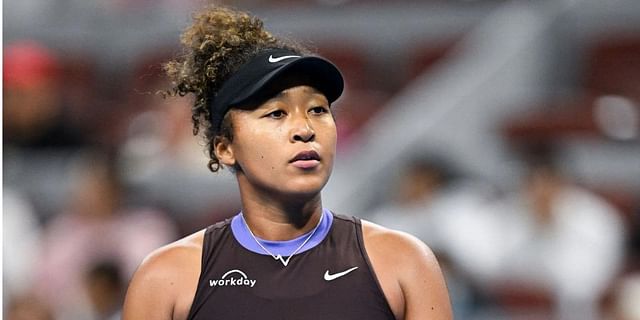
Breaking News! Naomi Osaka Withdraws from Pan Pacific Open Amid Continued Consistency Struggles
Naomi Osaka’s return to tennis has hit another roadblock as the former world No. 1 has withdrawn from the Pan Pacific Open, raising concerns about her ongoing consistency struggles. The four-time Grand Slam champion, who has faced challenges both on and off the court in recent years, continues to battle for form and rhythm as she works to regain her competitive edge.
Struggles with Consistency
Since returning to the tennis circuit after taking time off for mental health and personal reasons, Osaka has struggled to find the level of consistency that once made her one of the sport’s dominant players. While she has shown flashes of brilliance, the demands of top-tier competition have taken their toll on the Japanese star. Her withdrawal from the Pan Pacific Open, a tournament held in her home country, is another setback in her bid to return to the top of women’s tennis.
This latest withdrawal comes after a string of early exits and injury setbacks, leaving fans and analysts alike questioning when — or if — Osaka will be able to fully return to her peak. Her absence from the tournament is particularly disappointing, as Osaka has a strong connection to the Pan Pacific Open, having won the title in 2019.
Reasons Behind the Withdrawal
Although Osaka has not publicly disclosed the exact reason for her withdrawal from the tournament, sources close to her team suggest it may be related to a combination of physical and mental fatigue. Since becoming a global icon, Osaka has faced immense pressure both on the court and off, as she has taken on responsibilities as a leading advocate for social justice and mental health awareness.
The physical demands of competitive tennis, combined with the expectations of being a high-profile athlete, have been a challenging balancing act for Osaka. After recently giving birth to her first child, Osaka had aimed to return to competition with renewed focus, but the challenges of maintaining her fitness and match sharpness have proven difficult.

The Road to Recovery
Despite her recent struggles, Osaka remains committed to her tennis career. In a statement following her withdrawal, she expressed gratitude for the support she continues to receive from fans and vowed to keep working toward a successful comeback.
“I want to thank everyone for their continued support. This isn’t the outcome I wanted, but I’m taking things day by day. I’ll continue to work hard, and I hope to be back competing soon,” Osaka shared on social media.
While the exact timeline for her return to full competition remains uncertain, Osaka’s supporters are hopeful that with time and patience, she can once again reach the heights of her career. However, her inconsistency and frequent withdrawals raise concerns about her long-term presence in the sport.
A Champion’s Legacy
Even though Osaka is currently facing challenges, her legacy in the sport is already cemented. She has become one of the most influential figures in tennis, not only for her achievements on the court but also for her advocacy and leadership off it. Her decision to take time off for mental health, in particular, opened the conversation around athlete well-being, inspiring countless others to prioritize their mental health.
Osaka’s four Grand Slam titles and numerous other accolades speak to her incredible talent, and fans are eager to see her return to winning ways. The Pan Pacific Open withdrawal may be a disappointment, but it does not erase her potential for a strong comeback in the future.
Conclusion
Naomi Osaka’s withdrawal from the Pan Pacific Open is the latest chapter in her ongoing battle with consistency since returning to the sport. While her challenges are undeniable, Osaka’s resilience and determination to overcome them remain a beacon of hope for her fans. As she continues to work on both her physical and mental recovery, the tennis world will be watching closely to see if she can once again rise to the top and reclaim her place as one of the sport’s elite competitors.
Leave a Reply